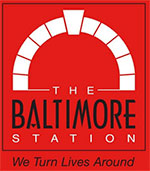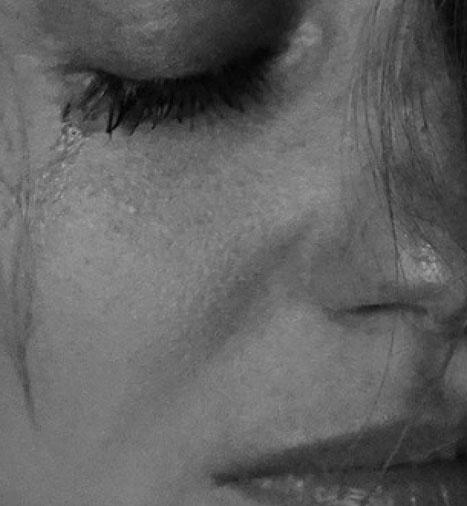Baltimore Maryland Addiction Hotline
Baltimore Maryland Substance Abuse Treatment Hotline
Baltimore, MD Addiction Hotline serves as a vital resource for individuals grappling with substance abuse, alcoholism, and opioid addiction throughout the state. With addiction being a pervasive issue affecting communities and families, the Baltimore Maryland substance abuse hotline offers assistance to those in need of support, guidance, and resources to navigate the challenges of addiction. Make the first step in battling your alcohol or substance abuse addiction by calling (888) 406-2090. Staffed by trained representatives who understand the complexities of addiction, the hotline provides confidential assistance and information, directing callers toward treatment options and addiction rehabilitation tailored to their needs. If you are dealing with a medical emergency, call 911.
City of Baltimore, Maryland Substance Abuse Statistics
Baltimore, Maryland, has been significantly affected by substance abuse. According to the 1999 National Household Survey on Drug Abuse, 5.2 percent of individuals surveyed in Maryland reported having abused an illicit drug[1]. In Baltimore, substance abuse is prevalent, with the city witnessing 393 deaths from drug and alcohol overdose in 2015[2]. The CharmCare website provides several reports on substance abuse and drug treatment in Baltimore, highlighting the need for support and intervention[3]. The high prevalence of substance abuse in Baltimore City underscores the urgent need for effective prevention and treatment strategies.
The impact of substance abuse on Baltimore communities is far-reaching and devastating. A new database shows that Baltimore is greatly affected by the opioid epidemic, with 174.1 drug overdoses per 100,000 people[4].
Substance abuse can lead to a host of negative consequences, including: – Increased crime rates – Higher healthcare costs – Lost productivity and economic impact – Family and social disruption The adverse effects of substance abuse can be particularly severe for vulnerable populations, such as children and adolescents[5]. Prioritizing the experiences of people living with addiction is essential to combating stigma in Baltimore City[3]. It is crucial to address the impact of substance abuse on communities and individuals and work towards effective solutions.
Efforts to combat substance abuse in Baltimore have been ongoing. The Health Department has used naloxone trainings to change the way frontline officials approach drug use and addiction[2]. Prevention and early intervention strategies can reduce the impacts of substance use and mental health issues[6]. Maryland substance abuse experts stress the importance of more access to treatment and medications to combat the opioid crisis[7]. By raising awareness, providing resources, and implementing effective prevention and treatment strategies, Baltimore can work towards reducing the prevalence and impact of substance abuse in the city.
References
1. Overview – Maryland Drug Threat Assessment. from www.justice.gov/archive/ndic/pubs1/1827/overview.htm
2. Combatting the opioid epidemic: Baltimore’s experience …. from www.ncbi.nlm.nih.gov/pmc/articles/PMC6927887/
3. Substance Use Disorder | Baltimore City Health Department. from health.baltimorecity.gov/programs/substance-abuse
4. Database shows opioid epidemic deaths high in Baltimore. from www.wbaltv.com
5. By the Numbers – Behavioral Health System Baltimore, Inc.. from www.bhsbaltimore.org/learn/by-the-numbers/
6. Baltimore City’s Response to the Opioid Epidemic. from health.baltimorecity.gov
7. Maryland substance abuse experts say more access to …. from www.baltimoresun.com

Baltimore, MD Drug & Alcohol Recovery Resources
Baltimore City Maryland Government Substance Use Disorder Resources
Baltimore City Maryland Government Substance Use Disorder Resources. Baltimore City disproportionately experiences negative ramifications of the statewide and national opioid epidemic. The disproportionate effects of the Crack Cocaine Epidemic, War on Drugs, Heroin, and the rise of Fentanyl in Baltimore City in comparison with other Maryland jurisdictions further amplify this. Addiction is a chronic disease that changes the chemistry of the brain. Whether it be in the workplace, in the community, or at home, those who suffer from addiction should be treated with dignity and respect. When people with addiction are stigmatized and rejected, it contributes to the struggles of dealing with SUD.
Baltimore City Maryland Government Opioid Epidemic Resources
Baltimore City Maryland Government Opioid Epidemic Resources. The Baltimore City Health Department is committed to preventing overdose deaths in Baltimore City. In 2021, Baltimore City saw 1079 drug and alcohol-related intoxication deaths, 973 of which were Fentanyl related. This is nearly triple the number of people who died of homicide during that same year. Baltimore’s aggressive five-pronged strategy for responding to the opioid epidemic has been recognized nationally. When building and implementing our response, the Baltimore City Health Department has prioritized bringing community members to the table, as a community in crisis requires a community solution.

Baltimore City Station Maryland Veteran Residential Treatment
Baltimore City Station Maryland Veteran Residential Treatment. The Baltimore Station (TBS) is a Maryland State licensed Clinically Managed Medium Intensity Residential Treatment (III.3) facility for homeless men. We are CARF (Commission on Accreditation of Rehabilitation Facilities) accredited and the largest VA-funded Grant and Per Diem (GPD) program in the region. The Baltimore Station offers programming based on an evidence-based and client-centered approach that combines a strong recovery model with an environment that promotes socially responsible behavior. Residents participate in individual counseling and group therapy sessions to help them identify a permanent home, a sustainable income, and the tools they need to lead a substance-free life.

TEAM Baltimore City Maryland Substance Abuse Program
TEAM Baltimore City Maryland Substance Abuse Program. Our treatment goes far beyond medication and traditional therapy. We provide a unique approach to treatment that is individualized, goal-oriented and realistic. We strive to assist members with establishing attainable goals toward taking back control of their lives and remaining substance-free. We utilize Individual and Group Therapy, both Intensive Outpatient and Outpatient Substance Abuse Groups, Mentorship, Community Activities, Peer Support, Medication Assistance, and more to help members to adjust to living a sober lifestyle.

